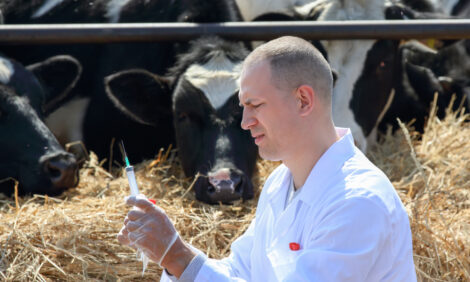



HPAI detection in dairy reinforces importance of pasteurising milk - report
Milk safety has greatly improved since the implementation of pasteurizationThe recent detection of highly pathogenic avian influenza (HPAI) H5N1 in dairy cattle, first identified in March 2024 and again on Dec. 2 in California, underscores the critical importance of consuming pasteurised milk, said Shaundra Ziemann-Bolinske, North Dakota State University Extension food systems coordinator.
According to the US Food and Drug Administration (FDA), the US milk supply is safe to drink, as long as the milk is pasteurised.
"Pasteurisation is a proven process that heats milk to a high temperature for a specific time, destroying disease-causing germs, including HPAI," explains Ziemann-Bolinske. "Viral fragments detected after pasteurisation are harmless; they simply show that the virus is dead and cannot affect human health."
The FDA maintains that unpasteurised (raw) milk is a high-risk food, potentially contaminated with pathogens, both bacterial and viral, that can cause serious illness. Pasteurised milk, however, retains all the nutritional benefits — vitamins, minerals and protein — without the associated health risks. This reminder comes as studies confirm that pasteurisation effectively inactivates HPAI and other pathogens, ensuring the safety of milk.
Milk safety has greatly improved since the implementation of pasteurisation, which continues to safeguard public health. According to the Centers for Disease Control and Prevention (CDC), prior to the introduction of pasteurisation in 1938, milk and dairy products were responsible for 25% of food-borne disease outbreaks. By 2016, that number dropped to less than 1%.
The FDA’s milk safety program prohibits milk from sick cows from entering the food supply chain. The program, along with the Pasteurised Milk Ordinance, ensures that milk and dairy products produced in the US are among the safest in the world.
The US Department of Agriculture (USDA) Animal and Plant Health Inspection Service recently launched its National Milk Testing Strategy. While North Dakota currently does not require testing of raw milk samples, investigations continue.
There are no confirmed cases of HPAI in North Dakota livestock, although neighboring Minnesota and South Dakota reported positive cases in July. The FDA is working with industry, federal and state partners to ensure the ongoing effectiveness of the federal-state milk safety system.



